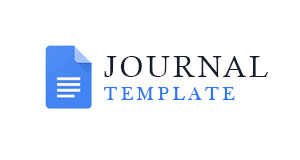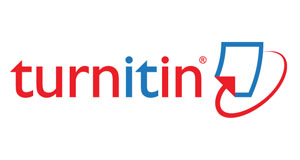The Swot Analysis Of Sharia Fintech Potential In Indonesia: Nvivo Approach Study And Literature Review
Abstract
Keywords
Full Text:
PDFReferences
Abadi, M. D., Lailiyah, E. H., & Kartikasari, E. D. (2020). Analisis SWOT Fintech Syariah Dalam Menciptakan Keuangan Inklusif di Indonesia (Studi Kasus 3 Bank Syariah di Lamongan). Jesya (Jurnal Ekonomi & Ekonomi Syariah), 4(1), 178–188. https://doi.org/10.36778/jesya.v4i1.298
Alifi, A., & Agung, W. D. (2023). Sharia Fintech Growth in Industry Revolution 5.0–Alami Sharia Study Case. El-Arbah: Jurnal Ekonomi, Bisnis Dan …, 7(2), 77–87. https://uia.e-journal.id/alarbah/article/view/2513%0Ahttps://uia.e-journal.id/alarbah/article/download/2513/1570
Allsop, D. B., Chelladurai, J. M., Kimball, E. R., Marks, L. D., & Hendricks, J. J. (2022). Qualitative Methods with Nvivo Software: A Practical Guide for Analyzing Qualitative Data. Psych, 4(2), 142–159. https://doi.org/10.3390/psych4020013
Aransyah, M. F. (2021). the Study of the Bank Syariah Indonesia Merger Based on Swot Analysis. Jurnal Manajemen Dakwah, 7(2), 197–223. https://ejournal.uin-suka.ac.id/dakwah/JMD/article/view/72-01
Aziz, F. A. (2020). Menakar Kesyariahan Fintech Syariah di Indonesia. Al-Manahij: Jurnal Kajian Hukum Islam, 14(1), 1–18. https://doi.org/10.24090/mnh.v14i1.3567
Benzaghta, M. A., Elwalda, A., Mousa, M., Erkan, I., & Rahman, M. (2021). SWOT analysis applications: An integrative literature review. Journal of Global Business Insights, 6(1), 55–73. https://doi.org/10.5038/2640-6489.6.1.1148
Dinda Fitria, R., & Elex, S. (2021). Improving Brand Image By Maximizing Product Quality, Promotion On Social Media, And E-Wom And Its Implications On Interest In Buying Bening’s Skincare Products. At-Tijaroh: Jurnal Ilmu Manajemen Dan Bisnis Islam, 10(0748), 22114.
Faizatul Milla, K., & Faisol, A. (2023). E-commerce dan Bisnis Fintech Syariah di Indonesia. Attractive : Innovative Education Journal, 5(1), 462–472. https://www.attractivejournal.com/index.php/aj/
Firmansyah, E. A., & Anwar, M. (2019). Islamic Financial Technology (Fintech): Its Challenges and Prospect. 216(Assdg 2018), 52–58. https://doi.org/10.2991/assdg-18.2019.5
Hafidhah, H., & Yandari, A. D. (2021). Training Penulisan Systematic Literature Review dengan Nvivo 12 Plus. Madaniya, 2(1), 60–69. https://doi.org/10.53696/27214834.39
Hakim, R., & Mohammad, D. I. (2019). Islamic Rulings and Financial Technology (Fintech): An Analysis on the Relevance and Implications. International Journal, 23(2), 137–146. https://doi.org/10.1108/978-1-78973-545-120191019.
Hiyanti, H., Nugroho, L., Sukamadilaga, C., & Fitrijanti, T. (2019). Peluang dan Tantangan Fintech (Financial Technology) Syariah di Indonesia | Hiyanti | Jurnal Ilmiah Ekonomi Islam. Jurnal Ilmiah Ekonomi Islam, 5(03), hlm.4.
Izza, N. N., & Rusydiana, A. S. (2023). A Qualitative Review on Halal Food: NVivo Approach. Management, and Business, 1, 90–106. https://ejournal.unida.gontor.ac.id/index.php/JTS/index
Kraiwanit, T., & Limna. (2023). NVivo for Social Sciences and Management Studies: A Systematic Review. Advance Knowledge for Executives, 2(3), 1–11.
Mashuri, M., & Nurjannah, D. (2020). Analisis SWOT Sebagai Strategi Meningkatkan Daya Saing. JPS (Jurnal Perbankan Syariah), 1(1), 97–112. https://doi.org/10.46367/jps.v1i1.205
Mazza Basya, M., Setya Iqbal Pratama, R., & Iqbal Surya Pratikto, M. (2020). Strategi Pengembangan Fintech Syariah Dengan Pendekatan Business Model Canvas di Indonesia. OECONOMICUS Journal of Economics, 4(2), 180–196. https://doi.org/10.15642/oje.2020.4.2.180-196
Misissaifi, M., & Sriyana, J. (2021). Faktor-Faktor Yang Mempengaruhi Minat Menggunakan Fintech Syariah. IQTISHADUNA: Jurnal Ilmiah Ekonomi Kita, 10(1), 109–124. https://doi.org/10.46367/iqtishaduna.v10i1.276
Napitupulu, R. M., & Sukmana, R. (2023). A Review of Fintech and Waqf Intersections in Academic Debates. ZISWAF: JURNAL ZAKAT DAN WAKAF, 10(1), 44. https://doi.org/10.21043/ziswaf.v10i1.19545
Napitupulu, R. M., Sukmana, R., & Rusydiana, A. S. (2024). Governance of Islamic social finance: Learnings from existing literature. International Journal of Islamic and Middle Eastern Finance and Management, 17(3), 552–571. https://doi.org/10.1108/IMEFM-06-2023-0222
Napitupulu, R. M., Sukmana, R., Rusydiana, A. S., Cahyani, U. E., & Wibawa, B. M. (2024). The nexus between halal industry and Islamic green finance: A bibliometric analysis. Journal of Islamic Marketing, 15(10), 2508–2527. https://doi.org/10.1108/JIMA-06-2023-0192
Numfor, S. A., Omosa, G. B., Zhang, Z., & Matsubae, K. (2021). A review of challenges and opportunities for end‐of‐life vehicle recycling in developing countries and emerging economies: A swot analysis. Sustainability (Switzerland), 13(9). https://doi.org/10.3390/su13094918
Nurul Izza, N., & Mi’raj, D. A. (2023). A Qualitative Analysis on Pesantren Economic. The Economic Review of Pesantren, 2(1). https://doi.org/10.58968/erp.v2i1.206
Plard, M., & Martineau, A. (2021). Writing a Literature Review on Long-Distance Trail-Running. Methodological guidelines for assisted qualitative analysis using Mendeley and NVivo software. ESTHUA Tourisme et Culture, Laboratoire Espaces et Sociétés, 1–18. https://hal.archives-ouvertes.fr/hal-03196818
Pusparini, M. D., Sukmana, R., & Napitupulu, R. M. (2024). “What is done and what is left to be done?” An investigation of YouTube as knowledge resource for Islamic endowment funds (cash waqf ) in Indonesia. Journal of Islamic Marketing. https://doi.org/10.1108/JIMA-06-2024-0227
Rahmawati, L., Rahayu, D. D., Nivanty, H., & Lutfiah, W. (2020). Fintech Syariah : Manfaat Dan Problematika Penerapan Pada Umkm. Jurnal Masharif Al-Syariah: Jurnal Ekonomi Dan Perbankan Syariah, 5(1), 75–90.
Rika Widianita. (2023). Determinants of Intention To Use Islamic Mobile Banking on Millennial Generation: Evidence From Indonesia. At-Tijaroh: Jurnal Ekonomi Islam, VIII(I), 1–19.
Saripudin, S., Nadya, P. S., & Iqbal, M. (2021). Upaya Fintech Syariah Mendorong Akselerasi Pertumbuhan UMKM di Indonesia. Jurnal Ilmiah Ekonomi Islam, 7(1), 41. https://doi.org/10.29040/jiei.v7i1.1449
Soehardi, F., Putri, L. D., & Dinata, M. (2021). NVivo Software Training for Young Researchers. Mattawang: Jurnal Pengabdian Masyarakat, 2(1), 8–13. https://doi.org/10.35877/454ri.mattawang265
Sulistyorini, A., Kusumawaty, I., Yunike, Y., & Gani, A. (2022). Dampak Covid-19 pada Kesehatan Mental: Kajian Literature Review Menggunakan Nvivo Plus 12. JSHP : Jurnal Sosial Humaniora Dan Pendidikan, 6(2), 121–136. https://doi.org/10.32487/jshp.v6i2.1521
Sutan Efendi, P. (2022). Peluang dan Tantangan Fintech Syariah dalam Mendorong Perekonomian UMKM Masyarakat Kediri. COMSERVA Indonesian Jurnal of Community Services and Development, 2(5), 373–382. https://doi.org/10.59141/comserva.v2i5.319
Syarif, A., Maulana, B., Salsabila, Z., & Maulana, A. (2023). Financial Performance Of Sharia Commercial Banks In Indonesia: Does Capital Structure Matter? At-Tijaroh: Jurnal Ilmu Manajemen Dan Bisnis Islam, 9(2), 242–252. https://doi.org/10.24952/tijaroh.v9i2.9940
Wahyuni, R. A. E. (2019). Perkembangan Ekonomi Islam di Indonesia Melalui Penyelenggaraan Fintech Syariah. Mahkamah: Jurnal Kajian Hukum Islam, 4(2), 184–192.
Waluyo, W., Piliyanti, I., & Wijaya, T. (2023). Enhancing Contribution of Islamic Higher Education to The Halal Industry in Indonesia: A SWOT Analysis. Jurnal Ilmiah Ekonomi Islam, 9(01), 1397–1403. https://jurnal.stie-aas.ac.id/index.php/jei/article/view/8435
Yahya, A. (2021). Sharia Fintech Development in Indonesia. https://doi.org/10.4108/eai.17-7-2020.2302984
DOI: https://doi.org/10.24952/tijaroh.v10i1.11073
Refbacks
- There are currently no refbacks.
Copyright (c) 2024 At-tijaroh: Jurnal Ilmu Manajemen dan Bisnis Islam

This work is licensed under a Creative Commons Attribution-ShareAlike 4.0 International License.









